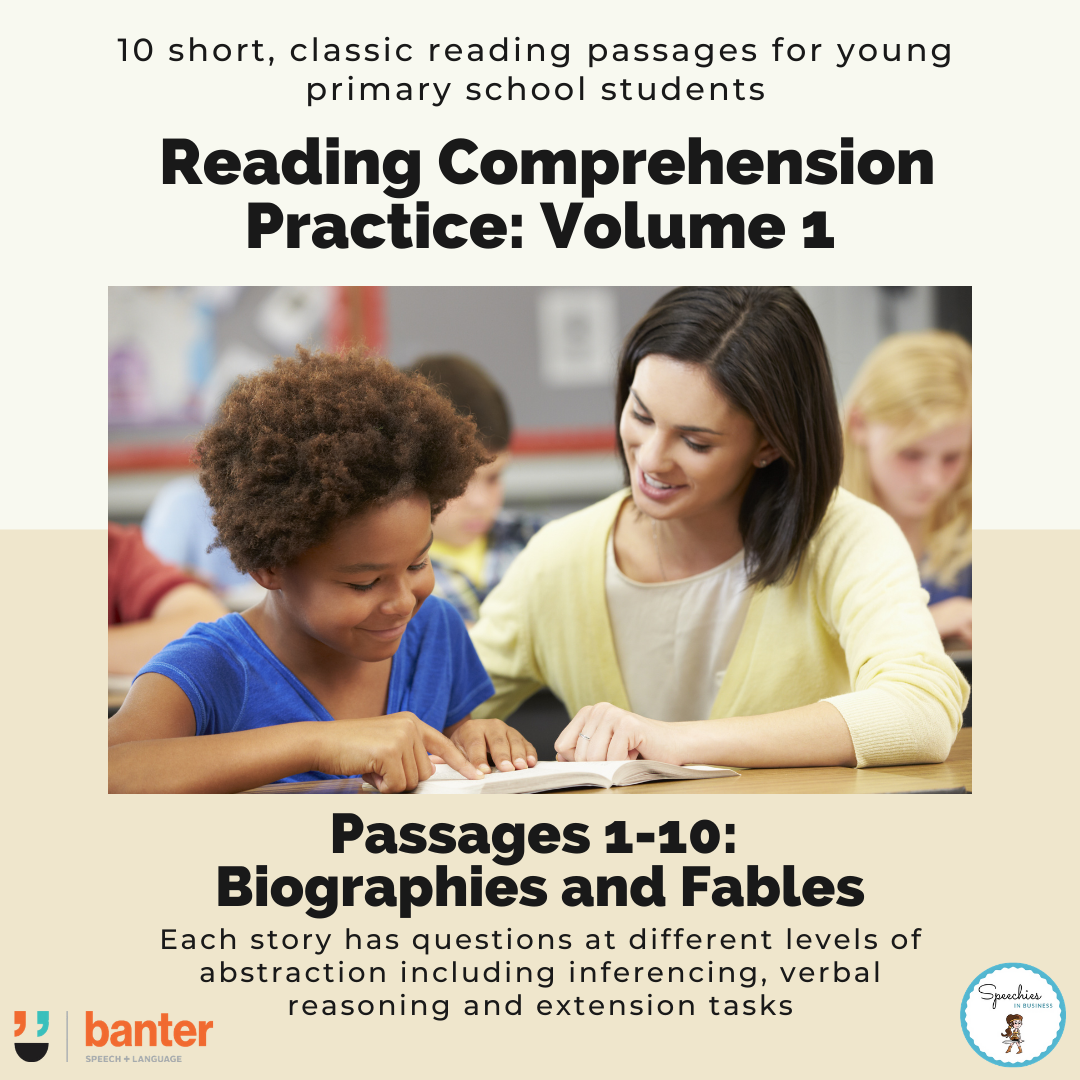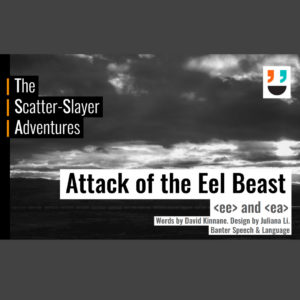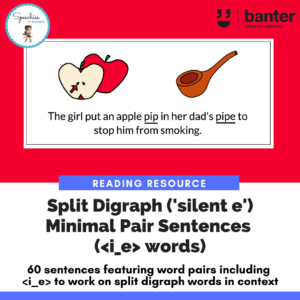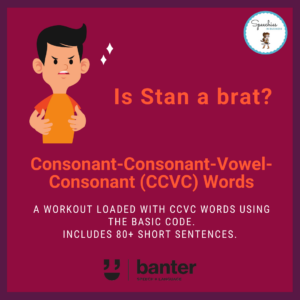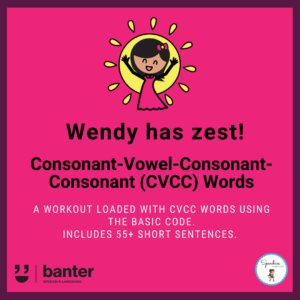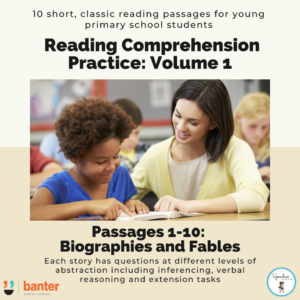(R801) Reading Comprehension Practice – Volume 1: Short Biographies and Fables
$6.99 including GST
In this 17-page resource, we have prepared 10 short, classic reading passages, each with 10 questions probing comprehension at different levels of abstraction, to help teachers and others working with students to model comprehension strategies.
Comprehension questions include simple “look back and find” facts in the text, as well as questions that require reorganisation of information, and abstract “why” and “how” questions requiring inferencing, prediction, retelling and other higher level language skills.
Description
Over the years, we’ve thought a lot about reading comprehension problems, and what to do about them.*
One way to improve reading comprehension skills is to practice evidence-based oral and reading comprehension strategies together regularly using interesting texts, adult modelling and think alouds, reciprocal teaching, and scaffolded dialogues around summarising, clarifying, question generating and predicting (e.g. Clarke et al., 2010).
To help teachers and others working with students to model comprehension strategies, in this 17-page resource, we have prepared 10 short, classic reading passages, each with 10 questions probing comprehension at different levels of abstraction.
Comprehension questions include simple “look back and find” facts in the text, as well as questions that require reorganisation of information, and abstract “why” and “how” questions requiring inferencing, prediction, retelling and other higher level language skills.
For students with good or advanced comprehension skills, we include an extension task to allow differentiation when working with groups. The passages are short and were selected to appeal to both young primary school students and older students with language or learning challenges. The theme of this volume is short biographies and fables.
For more reading passages, see our:
- Reading Comprehension Practice, Volume 2: explanations of familiar things.
- Reading Comprehension Practice, Volume 3: months of the year and annual events.
*You can read some of our thoughts and strategies for improving oral language and reading comprehension in our articles:
- Reading comprehension problems and what to do about them.
- Help your child to fill in the gaps, join the dots, and ready between the lines.
- Six strategies to improve your child’s reading comprehension (and how to put them into practice)
- Too many stories, not enough facts: free tips and resources to boost your child’s knowledge and reading comprehension skills.
- Free, evidence-based study and learning strategies.


